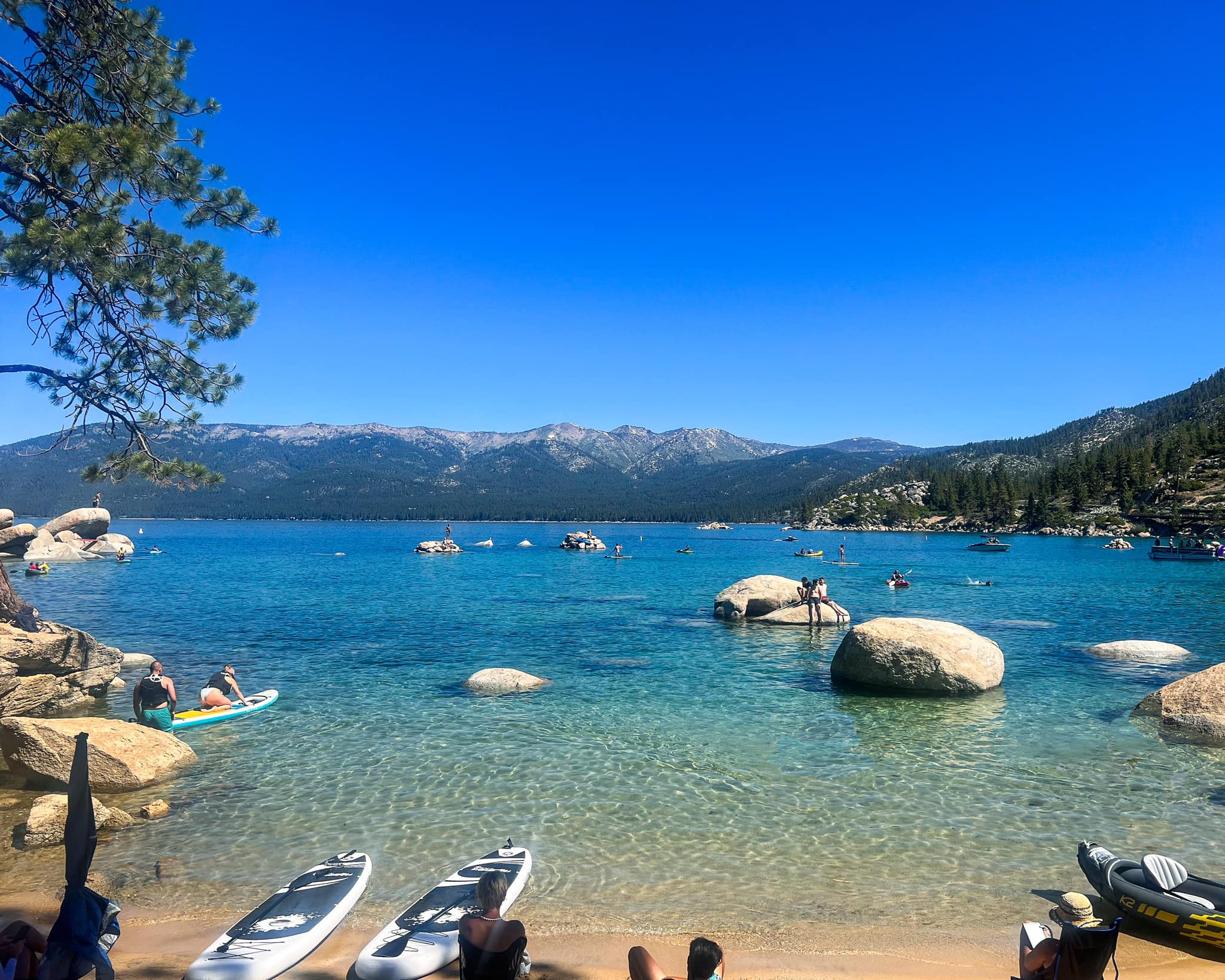
WASHINGTON, D.C. — U.S. Senators Alex Padilla (D-Calif.), Chair of the Environment and Public Works Subcommittee on Fisheries, Water, and Wildlife, Laphonza Butler (D-Calif.), Catherine Cortez Masto (D-Nev.), and Jacky Rosen (D-Nev.) announced the Senate passage of their bipartisan, bicameral legislation to extend the authorization of the Lake Tahoe Restoration Act through 2034. The bill would allow the continuation of federal funds to maintain the environment, support local jobs, and strengthen the tourism economy at Lake Tahoe. The legislation now heads to the U.S. House of Representatives.
The original Lake Tahoe Restoration Act was passed in 2000 and authorized $300 million for the restoration of the lake and surrounding basin. The current authorization, which was passed in 2016, is set to expire later this year. Reauthorizing the bill would prevent an interruption in conservation and restoration planning.
“Lake Tahoe is a treasure, and we must do everything we can to protect it for future generations,” said Senator Padilla. “As the threats of climate change continue to escalate, I’m thrilled to have worked alongside my California and Nevada colleagues to successfully pass the reauthorization of the Lake Tahoe Restoration Act through the Senate to provide critical funding to preserve Lake Tahoe and protect it against pollution, invasive species, and wildfires.”
“By reauthorizing the Lake Tahoe Restoration Act, we protect the iconic landscapes that make California beautiful and support local jobs that rely on a healthy Lake Tahoe,” said Senator Butler. “Although we have made significant progress in keeping Tahoe blue, we need to remain steadfast and protect it from climate change, wildfires, and pollution.”
“Sustainability programs in Tahoe must be able to keep up their operations so we can continue to keep the lake clean and support our local communities — not just today, but for future generations. That was the vision previous Senate leaders had for Lake Tahoe, and it is what I’ve been fighting for,” said Senator Cortez Masto. “Passing the reauthorization of the Lake Tahoe Restoration Act through the Senate is a huge step forward, and I urge my colleagues in the House to pass this vital bill into law as soon as possible.”
“Lake Tahoe is one of our state’s natural treasures and a driver of northern Nevada’s local economy,” said Senator Rosen. “We’ve come a long way in protecting and preserving our beautiful lake and surrounding communities from the effects of climate change, and we must continue to build upon those efforts. I’m thrilled to see that the Senate has passed our legislation to make sure that future generations can enjoy Lake Tahoe, and I’ll keep fighting until it becomes law.
“Representatives Mark Amodei (R-Nev.-02), John Duarte (R-Calif.-13), John Garamendi (D-Calif.-08), Steven Horsford (D-Nev.-04), Kevin Kiley (R-Calif.-03), Susie Lee (D-Nev.-03), and Dina Titus (D-Nev.-01) are leading companion legislation in the House of Representatives.
Senator Padilla has been a key champion for Lake Tahoe in the U.S. Senate. Padilla hosted the 27th Annual Lake Tahoe Summit last year, convening a bipartisan, bi-state coalition of local, state, federal, Tribal, and environmental leaders where he emphasized the urgent need to extend the authorization of the Lake Tahoe Restoration Act through 2034. In 2021, Padilla led the 25th Annual Tahoe Summit and launched the first virtual exhibit to highlight the pioneering conservation work of the Lake Tahoe Summit. As a member of the Senate Environment and Public Works Committee, Padilla also secured provisions in the Water Resources Development Act of 2022 to authorize U.S. Army Corps of Engineers civil works and ecosystem restoration activities in the Lake Tahoe Basin, including the planning, design, and construction of urban stormwater treatment facilities, watershed science, and environmental restoration.
Senator Padilla previously supported $7 million in critical funding for fire suppression water infrastructure in the Tahoe Basin through the FY22 appropriations package, made even more essential by the Caldor Fire. Additionally, Padilla supported $3.4 million in funding from the Bipartisan Infrastructure Law to protect Lake Tahoe. This funding from the U.S. Fish and Wildlife Service supported cooperative agreements with the Washoe Tribe of California and Nevada and the Tahoe Regional Planning Agency to help combat the spread of aquatic invasive species in Lake Tahoe.